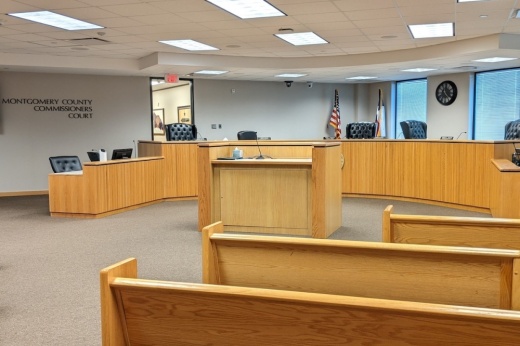According to the Texas Tax Code Chapter 312, tax abatements are an agreement between taxing units, such as Montgomery County, and taxpayers that exempts the taxpayer from the increase in value of property for up to 10 years. The Texas Comptroller’s website describes tax abatements as tools to “attract new industries and to encourage the retention and development of existing businesses through property tax exemptions or reductions.”
According to County Attorney B.D. Griffin, precincts 1 and 3 contain the county’s most tax abatements, leading to Walker’s and Noack’s assignment.
County Tax Assessor-Collector Tammy McRae told commissioners the guidelines, which were last updated in 2020, were due to be updated by this October. Commissioners at the Oct. 11 meeting considered deferring the item until Noack suggested continuing the discussion as noticed.
“The guidelines are due to sunset this year,” McRae said. “Typically they are updated by committee, with a judge and a senior commissioner taking part.”
McRae and Griffin told commissioners the guidance needed to update the abatement guidelines included recommendations to ensure the county gets the most out of new agreements. Griffin said one of the primary causes of defaults was the inability of companies to reach the minimum number of employees to satisfy their end of the bargain.
“COVID-19 and other economic concerns have made it difficult for these companies to meet the worker requirement," Griffin said. "In our agreements we ask companies to be conservative with their worker estimates because we will hold you to them."
Griffin suggested increasing the minimum amount of capital investment needed to qualify for an abatement, pointing out that companies have not struggled to meet that requirement. He provided a hypothetical example of increasing the Category A exemption, which deals with expansions to new or existing businesses, from $4 million to $10 million—and suggested that all categories undergo revisions.
The Oct. 11 meeting saw two individual abatements brought up for termination with Bauer Manufacturing doing business as NEORig. The Bauer abatement for its Conroe Industrial Park facility was terminated on the company’s initiation, and McRae reported Bauer had already paid back the $73,560.45 owed to the county.
A separate abatement agreement with Illinois-based human resources consulting company Alight Solutions, LLC and The Woodlands Land Development Company was brought forward, but no action was taken. McRae said the company was also struggling to meet the minimum employee requirement of 950 workers in its Woodlands Medical Park facility.





